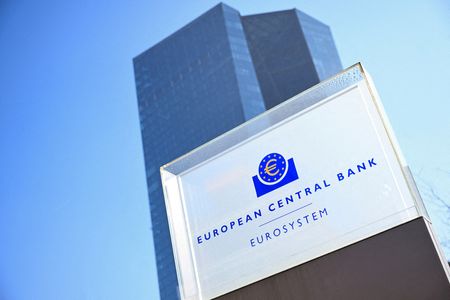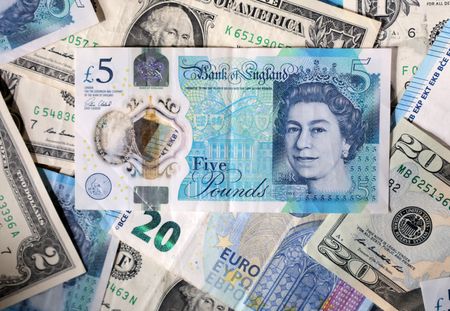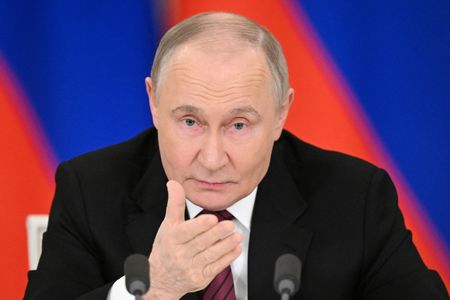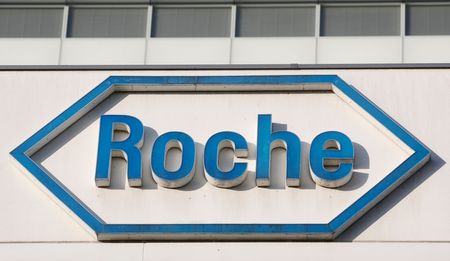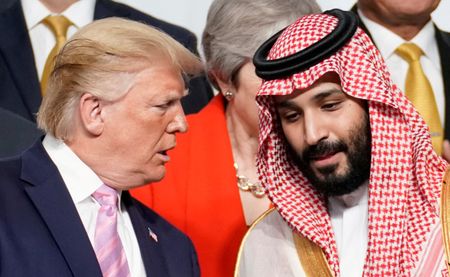By Stefano Rebaudo
(Reuters) -Euro area benchmark Bund yields hit a fresh one-month high and markets reduced bets on European Central Bank interest rate cuts on Monday as less severe trade and geopolitical tensions eased concerns about economic growth.
Remarks from ECB board member Isabel Schnabel also supported a reduction of bets on future ECB monetary easing.
The ECB should stop cutting borrowing costs as turmoil in the global economy is fuelling price pressures and inflation was at risk of exceeding the bank’s 2% target in the medium term, Schnabel said on Friday.
Speaking after talks with Chinese officials in Geneva, U.S. Treasury Secretary Scott Bessent told reporters the two sides had agreed on a 90-day pause on measures and that tariffs would come down by over 100 percentage points to 10%.
On the geopolitical front, Ukrainian President Volodymyr Zelenskiy said he would agree to meet Russian President Vladimir Putin in Turkey on Thursday, while a fragile ceasefire held between India and Pakistan.
Germany’s 10-year yield, the euro area’s benchmark, rose 6.5 basis points (bps) at 2.62%, after hitting 2.631%, its highest level since April 11.
“Although the de-escalation of the trade war (between U.S. and China) benefits both economies, the agreement, which significantly lowers tariffs without any concessions, is likely to be viewed as a particular victory for China,” said Lynn Song chief economist, greater China at ING.
China is the euro area’s second-largest trading partner with Germany which has the higher exposure.
Money markets priced in an ECB deposit facility rate of 1.75% by year-end, returning a few bps above levels seen in mid-April before the European Central Bank suggested it was ready to cut rates in response to the potential adverse economic impact of U.S. tariffs. They had indicated a deposit rate below 1.55% on April 25 and at 1.67% late Friday.
Investors priced policy rates around the December levels until summer 2026. The depo rate is currently at 2.25%.
Analysts expect the U.S.-China deal to pave the way to more trade agreements, including with Europe.
Here are the key calls on the trade war from Holger Schmieding, chief economist at Berenberg: Trump will do deals; the worst of his trade wars could be over within two months from now; U.S. tariffs will likely stay significantly higher than they were before Trump’s second term.
“Trump’s trade policy and the resulting uncertainty will hurt the U.S. much more than most other countries,” Schmieding said in a research note.
He confirmed this view after the U.S.-China statement, while also noting that the euro zone will experience a period of very slow growth in the second quarter and early third quarter.
The German two-year yield, more sensitive to European Central Bank policy rates, was up 9.5 bps at 1.84%.
Italy’s 10-year yield rose 5.5 bps to 3.67%, leaving the spread between Italian and German yields – a market gauge of the risk premium investors demand to hold Italian debt – at 100 bps.
This week’s data include the U.S. consumer price index and retail sales, which will show the initial impact of tariffs.
“The U.S. inflation data is unlikely to change the Federal Reserve’s mind, as several members have recently expressed their awareness of upside risks to inflation expectations,” said Rainer Guntermann, rate strategist at Commerzbank.
(Reporting by Stefano Rebaudo; Editing by Hugh Lawson, Sharon Singleton and David Evans)

